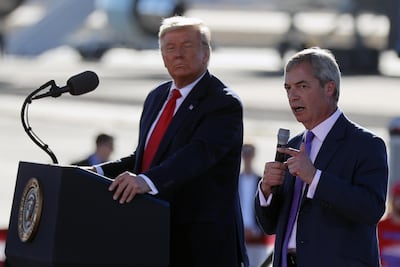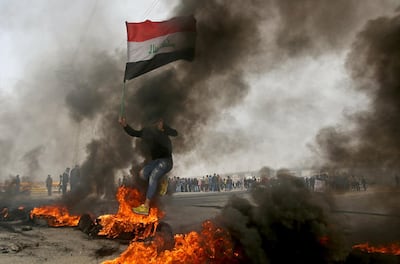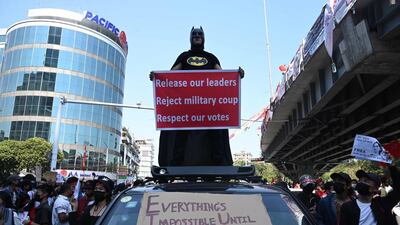The Myanmar coup caught many by surprise, as events of international significance seem to do on a regular basis. We are bad at predicting outcomes generally, despite expending so much effort and resources on analysis that tries to make forecasts, even when we know certain developments are inevitable. Governments cut funding for their pandemic response in the years leading up to the current pandemic. Few intelligence agencies predicted the Arab uprisings in 2011 despite the ongoing ferment of dissatisfaction with many of the region's rulers, and even the political minds behind Brexit and the rise of Donald Trump thought both were long shots.
Post-facto analyses, though, tend to discern the warning signs and patterns with the benefit of hindsight. In the conventional wisdom, the events in question become inevitabilities rather than things that could have been predicted. The election of Mr Trump was a reaction to economic inequalities, the sweep of anti-immigration sentiment and repressed white nationalism, and most media simply failed to foresee it either because it did not take the threat seriously or because its practitioners were too disconnected from the story, for example.
It was the same with Myanmar. The tidy narrative of a military handing over power to civilians on the road to democratic reform was the story many around the world were told, until it wasn't. The post-facto analysis revealed that the military, contrary to popular belief, had not really given up its power and remained largely running things behind the scenes, and took back all the reins when the charade became untenable, all while the world was not paying attention.

I have been thinking about this idea of the narratives we tell ourselves, especially as it relates to Myanmar, because of a powerful strain of reaction on Arab social media when the news emerged. Many online users expressed pleasure at the development because they saw Aung San Suu Kyi, the deposed state counsellor, democracy activist and Nobel Peace Prize laureate, as having abetted the genocide and forced displacement of the Rohingya, despite the fact that the military that ousted her were the ones that carried out the actual atrocities.
As a journalist, I have come to appreciate the power of narratives and the stories we tell ourselves to rationalise or understand faraway events that we don’t intuitively grasp or have direct experience of. The world is a big place with profound suffering in many of its corners. And while most of us have empathy, we lack the capacity to identify with every tragedy that we read about. Premade narratives help solve this problem by providing us with a template that allows us to understand complex, scary events around the world.
This is something we deal with in the Middle East on a regular basis. It is easier to ascribe the violence that grips places such as Syria and Iraq to ancient hatreds and centuries-old religious and sectarian schisms that make conflict inevitable and the arduous work of peacebuilding and reconciliation subsequently pointless and not worth the effort. It is easier to blame forces outside of our control rather than look at the power imbalances, the corruption, the lack of electricity, the failing education and public health systems, and the environmental degradation brought about by climate change and years of war because those problems are harder to solve.

However, these narratives are also a consequence of how the media covers these issues and conflicts. Limited by the decline in funding and resources that have seen many newsrooms shutter their foreign bureaus and dismantle their foreign desks, international journalists are stretched thin. Without the capacity to spend more time in and with the communities they cover, without the space and time to develop expertise and knowledge, we will be doomed to a glib and shallow understanding the world, rooted in stereotypes and cliches.
How do we resolve this? Newsrooms should empower local journalists and freelancers operating around the world who have cultural and social connections to the communities they cover, and who have developed the expertise necessary to report truthfully, accurately and with subtlety about those communities, and pay them a fair wage for the effort. Local journalists are more able to track local developments, identify important sources, and draw on cultural knowledge to accurately report stories. And they often know what the real story is.
International journalists are essential to journalism, often because they are able to report on particularly sensitive stories without repercussions as dire as they may be for local journalists, who sometimes have to pay dearly for their work. But encouraging greater collaboration with local journalists whose ears are glued to the ground will pay dividends, not just by creating more diversity in newsrooms and having a broader array of original international coverage, but also by creating more complex, subtle, and truer narratives of the world. Rather than shy away from complexity with ever dwindling word counts from faraway places, we can embrace it.
Kareem Shaheen is a veteran Middle East correspondent in Canada and a columnist for The National


